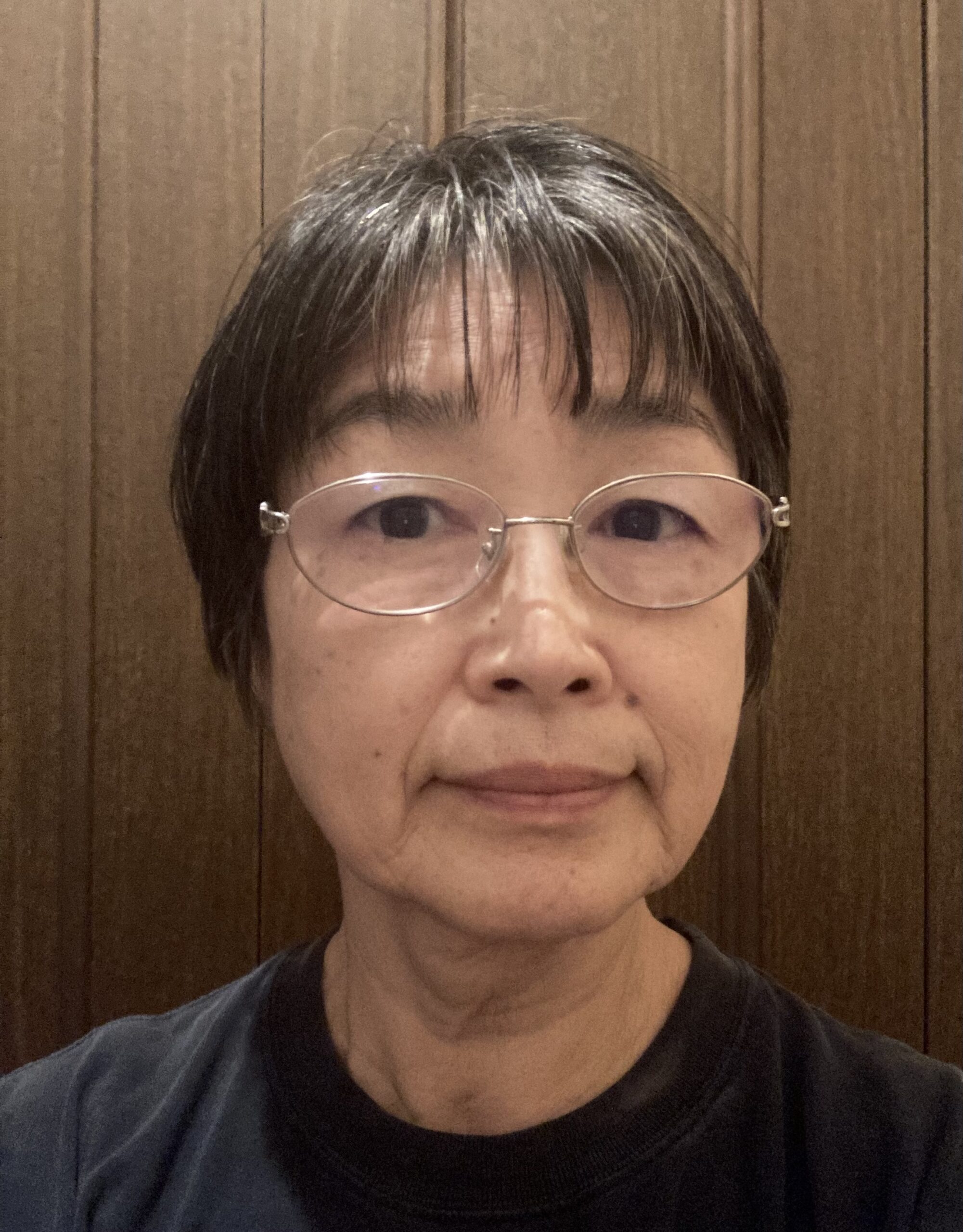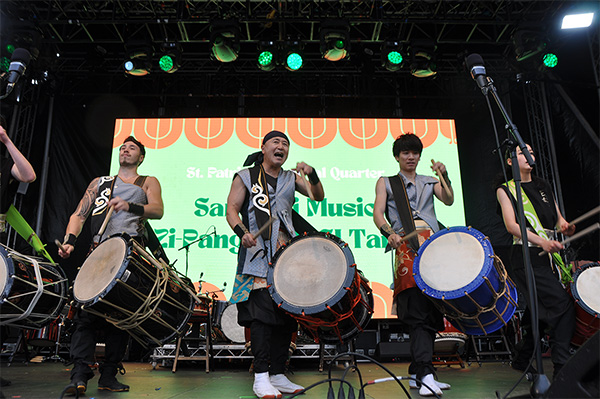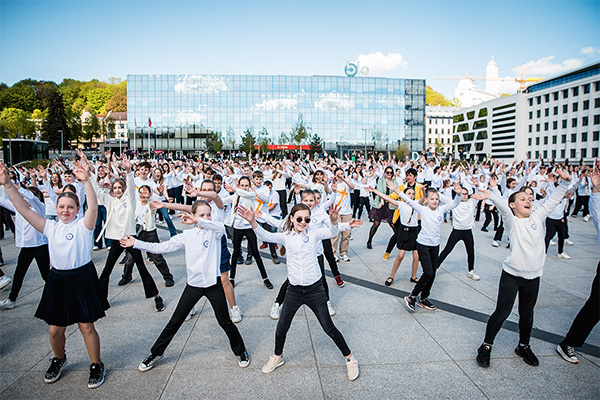Column
ColumnTo connect the young singing voices in the Tormis World
I first met conductor Janne Fridolin and choir leader Evelin Välva of the Estonian Youth Mixed Choir VOX POPULI in July 2019 in Tallinn, just after the previous Song and Dance Festival had ended. I had arranged to meet them in the Old Town at 7 p.m. that day. However, engrossed in conversation under the blazing sun at my friend’s house, I lost track of time. When a phone call came in, I realized that I had already kept them waiting for an hour! I hurriedly took a taxi back to the Old Town but ended up making them wait for a total of two hours. Nevertheless, they warmly welcomed me with smiles, without any hint of displeasure. They had come to discuss the possibility of singing works by the globally renowned Veljo Tormis, who had left a legacy of Estonian folk songs in choral compositions, and the idea of singing them in Japan. With the support of the Estonian Embassy and collaboration with individuals in Sendai who had previously hosted Estonian choirs, we started working positively on the project, and preparations progressed smoothly.
However, unexpectedly, the world took a turn in an unforeseen direction. In 2020, the beginning of the COVID-19 pandemic thwarted our plans. While physical interaction and travel became impossible, we believed we could proceed with the project the following year. As a prelude to that, an online exchange event was organized in October 2020. It was created a seamless connection despite the 6-hour time difference and concluded with the promise, “Let’s meet in Japan next year!”
Yet, uncertainties surrounding the pandemic persisted, the following years seemed doubtful as well, but finally, in 2023, with the easing of gatherings and the potential resumption of foreign tourist acceptance, discussions intensified. In March 2023, cautiously exploring the possibility, we started looking for venues. However, all concert halls in Tokyo were already occupied. Fortunately, it seemed as if the Edogawa City General Cultural Center’s small hall had been waiting for our reservation, available only in the evenings. We decided to go ahead with the tour planning, and action began. Four years had passed.
On October 24, 2023, 40 members arrived at Haneda Airport after a 15.5-hour detour from Tallinn, unable to fly over Russian airspace due to the ongoing Ukraine war. The Japan-Estonia Friendship Association eagerly awaited their arrival after passing through immigration. Finally, 1.5 hours later, the young members, aged 10 to 30, emerged from the arrival gate, seemingly a bit anxious but with smiles mixed with relief when I greeted them with “Tere!” (hello in Estonian). After checking in a domestic flight heading for Hokkaido, which is their first performance place, they rushed into the shopping mall in the terminal to enjoy for just a short free time.

October 25, it brought clear skies for their first morning in Japan. The chilly morning air was somewhat similar to Estonia’s, relaxed the choir members’ feelings. Arriving at UPOPOY, a cultural space symbolizing coexistence with the Ainu people, the path to the entrance was adorned with paintings of the Ainu forest and animals, inviting everyone to the world shared by the Finno-Ugric people depicted in Veljo Tormis’s music. Naturally excitement and smiles filled in their face.
The venue was the newly built annex of the UPOPOY Experience Hall, with the scent of northern woods. The concert began with images projected on the screen, which was created from the Tormis 90th-anniversary concert held in the forest. As the singing started from the back of the audience, the full house was captivated and immersed in the performance. After the concert, despite the initial surprise and confusion at Tormis’s music, the visitors left the venue with satisfied expressions. With the kind cooperation of UPOPOY staff, a meeting with Ainu leader Masahiro Nomoto and interaction with Ainu dancers were realized. That was the conditions for receiving a grant from the Estonian Cultural Agency. Everyone seemed even more drawn to the Ainu culture, finding common ground with the Finno-Ugric roots of Estonians.

Via staying the night in Hakodate, the group moved to Sendai the next day, where the Sendai Executive Committee and five local choirs, which we finally met in person after three years of online exchange events, warmly welcomed us. Joy filled the air. In particular, the young members of Raw-Ole, challenged by a collaboration with VOX POPULI, put effort into rehearsals on a big stage. By the end of the performance, they had overcome the challenge of creating a unified musical world and had become close friends.
In Tokyo, the choir collaborated with the Choral Club of Kanto Daiichi High School. They borrowed the school’s kendo hall for an exchange event and a workshop with performances. Despite the challenging conditions of an only-one-hour stage-rehearsal before the actual performance, everyone was so serious that they finally gave a remarkable performance. The audience rewarded them with enthusiastic applause. Young people from Japan and Estonia joined forces to create a musical bond, not only singing as a choir but also experiencing performances they might not express in their usual routines. Each member of VOX POPULI, having the opportunity to showcase their country’s pride while experiencing the diverse culture of Japan, gained significant confidence.
Completing the one-week, three-performance tour successfully came to be possible by the passion of everyone involved and the understanding and support of the EU-Japan Fest Japan Committee, both in terms of realization and financial assistance. I express my sincere gratitude for supporting this wonderfully fulfilling tour.

While there are regions in the world surrounded by unsettling atmospheres, I hope for a swift resolution. Through programs like the EU Capital of Culture, I pray that cultural exchange will demonstrate the power of bringing peace to the world, not only between Japan and Estonia but globally.








